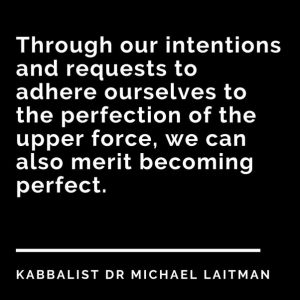To Look at Everything Through the Goal
 Question: There are a huge number of interesting things in the world. How do you filter them so that some things do not lead you sideways?
Question: There are a huge number of interesting things in the world. How do you filter them so that some things do not lead you sideways?
Answer: I always look at them through the goal to see how these things fit into it: me, the goal, and how the entire universe is between me and the goal. After all, it is not somewhere else on the side, but only between me and the goal. In order to feel the universe correctly, I need to see what I am observing now and the goal.
Wherever I am, in La Scala or at the Paris Opera, in some museum or at the Greek Meteora (rock monasteries), I enjoy watching everything, taking it in, and for me it all fits into one mosaic between the upper world, our world, and the flow of humanity toward its final purpose.
It is very interesting to me, I have been collecting this mosaic all my life. I do not have anything that would be just a separate fragment—it happened and is gone. I sort of collect my life, I have such a need for a sense of wholeness.
Comment: If we look at the way the media distort events and how they present them…
My Response: Now we are talking about culture, about history, although I am fitting it into my history—culture, science, and history.
From the media comments, I extract what I need. Let’s say there are 20 commentators in front of me. It does not matter to me whether they say correct things or not or whether they lie or not, I do not even look at that.
I check to which comment I can give my methodology, and I take this comment. I am not interested whether it is right or not. Someone said it, and it is good enough. At least I can express something of my own in a remark to this, for example, in a blog.
The main thing is that I took it as a kind of precondition, whether it is right or not does not matter, and I expressed my point of view. This is what is important!
[298702]
From KabTV’s “I Got a Call. Architectural Monuments” 5/25/14
Related Material:
Taste For Beauty Remains
The Wisdom Of Kabbalah Does Not Prohibit Anything
The Wisdom Of Kabbalah And Scientific Work

 Michael Laitman, On Quora:
Michael Laitman, On Quora:






